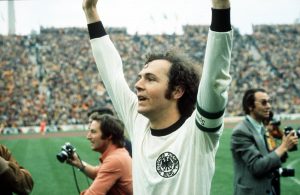The longest Premier League season on record will finally come to a close on Sunday just two weeks short of a calendar year since it began, but the fact it will finish on the pitch at all is cause for celebration after months of uncertainty caused by coronavirus.
In the 100 days without play between March 9 and June 17 there were huge doubts the season could be restarted in the country with the highest death toll from COVID-19 in Europe.
The return of the world’s richest league has not been flawless. Empty stands have seen matches played out to the echoes of players’ cries to each other rather than the atmosphere generated by full houses.
Water breaks in each half, even in matches played in rainy English conditions, and the chance for each side to make five substitutes have further disrupted the flow of a league that often sells itself on a fast-paced product.
But amid the backdrop of financial ruin that cancelling the season would have caused, those imperfections and a few drab matches were worth living with for most.
“You make the best of what you can,” said Liverpool manager Jurgen Klopp after his side lifted the Premier League trophy at the famous Kop end at Anfield.
“Everything would be better with fans but for months we knew that would be impossible. A few months ago I thought it was impossible that we play football.”
By returning even behind closed doors, the financial implications for the Premier League of a potential £1 billion ($1.3 billion) loss have been mitigated but not completely eradicated.
English top-flight clubs are reportedly facing a rebate bill of around £330 million to broadcasters as matches could not be completed on schedule.
– Broadcasters kept on side –
Matchday income has also been lost with no fans in the stands and it remains uncertain if and when they can return for the 2020/21 season, which is due to start in September.
Broadcasters were kept on side, though, by being awarded rights to more live games, many of which were shown on free-to-air in the UK, and a made-for-TV schedule that saw just four days without a Premier League game between June 17 and July 22.
Free-to-air games also had the added benefit of maintaining public interest with Southampton’s 1-0 victory over Manchester City shown on the BBC breaking the Premier League record with a domestic audience of 5.7 million viewers.
By completing the season on the field, the Premier League has also avoided potentially very costly legal cases when it comes to who is promoted, relegated and qualifies for European competitions next season.
Liverpool got the chance to win a first league title for 30 years without the asterisk of a season decided on points-per-game, while the battles for a place in the Champions League, Europa League and to stay in the top flight will go down to the final day.
– Rigorous testing –
Fears that the financial motivations for “Project Restart” would outweigh concerns over player welfare have also been eased by a rigorous, twice-weekly testing programme that has resulted in just eight positive cases from the last 15,599 tests over the past five weeks.
Project Restart has also given the Premier League a worldwide platform to support to the Black Lives Matter movement with each match beginning with players, staff and officials taking a knee to protest against racial injustice.
On the field, there are even more signs of a bright future for English football with the emerging talents of Manchester United’s Mason Greenwood, Phil Foden of Manchester City and Arsenal’s Bukayo Saka among the star performers of the past five weeks.
However, some of the concerns over football’s return were realised as fans in Liverpool and Leeds ignored pleas to stay away from stadiums to celebrate their long-awaited title triumphs.
A total of 13 arrests were made outside Anfield and Elland Road on Wednesday as thousands gathered on the night both the Premier League and Championship trophies were presented.
Premier League CEO Richard Masters described the scenes of mass gatherings of celebration in Liverpool last month as “regrettable”.
But little else has gone wrong for the Premier League’s master plan as a season like no other ends as well as could have been hoped for five weeks ago.





